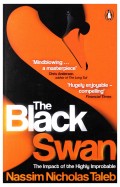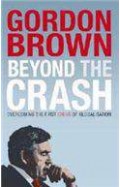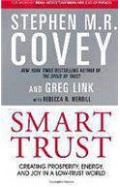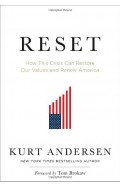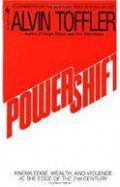PAKISTAN'S ECONOMIC JOURNEY: NEED FOR A NEW PARADIGM
By: FASIH UDDIN
-
Rs 1,500.00
Due to constant currency fluctuation, prices are subject to change with or without notice.
Economics and peoples’ decisions related to this important sphere of life play a pivotal role in human life. This fact remains true, irrespective of the differences of time, space and the levels of decision making - be it individual, family, national or a scale as large as global. Increasing connectivity, especially in this time of globalization surge, has further reinforced the phenomenon. The economic decisions which are made at any point, directly or indirectly reflect on all other levels as well, in one way or the other. In spite of this significance of human behaviors in routine lives in economy-related matters, it remains to be a fact that a large number of people know very little about the subject’s dynamics. Even many experts who are generally very expressive and analytical over diverse matters, rightfully admit their lack of knowledge about economics. In this backdrop, Pakistan’s Economic Journey – Need For A New Paradigm has been prepared with two objectives in view. First, it should serve as a policy document: suggesting a future strategy for Pakistan after technically reviewing the 70 years economic journey of the country, and second, articulating and presenting all the concerning issues in such a way that they remain easy to comprehend even for the common readers. In line with the given objectives, each chapter of the book starts with an introduction which explains the important concepts relevant to the subject along with their backdrop and the contemporary debates over those concepts, and finally the presentation of Pakistan’s scenario in the given context. Hence the book is not only useful for economic experts, but also for the students as well as for those having general interest in the subject. The book consists of 19 chapters. Each deliberates upon important aspects of economy such as Paradigm for Development, Industry, Inflation, Public Finance, Human Resource Development, Poverty & Economic Disparity, WTO and Globalization etc. Despite having its individual identity, discussion in each chapter has obvious linkages with other chapters, and this albeit may give an impression of repetition at times, still does not look odd, given the book’s overall scheme. The book was first published in 2006. Three editions of the book have been published since then, including a Chinese translated version that was published by Pakistan Study Centre, Sichuan University, Chengdu, China. The statistics presented in the earlier editions of the book have changed considerably during this time, the general trends of the country’s economy however have still remained somewhat unchanged. This revised edition contains latest statistics at many places. In addition, the book at the end also contains the graphical representations of statistics over important topics covering the period of 1951-2018. These graphs will be especially enticing for the people having interest in updated statistical data. The key message of the book is based on the paradigm that is given in the chapter 19. As a matter of fact, the paradigm not only provides guidance for improvement in Pakistan’s economic state, but also for the global economy in general. Fasih Uddin, the author of the book, is a longstanding member of IPS’ Governing Body and National Academic Council. We, on behalf of the Institute, pray for him and are profoundly grateful to him for taking out time and putting in extra effort for this revised edition of the book despite facing health problems.
Economics and peoples’ decisions related to this important sphere of life play a pivotal role in human life. This fact remains true, irrespective of the differences of time, space and the levels of decision making - be it individual, family, national or a scale as large as global. Increasing connectivity, especially in this time of globalization surge, has further reinforced the phenomenon. The economic decisions which are made at any point, directly or indirectly reflect on all other levels as well, in one way or the other. In spite of this significance of human behaviors in routine lives in economy-related matters, it remains to be a fact that a large number of people know very little about the subject’s dynamics. Even many experts who are generally very expressive and analytical over diverse matters, rightfully admit their lack of knowledge about economics. In this backdrop, Pakistan’s Economic Journey – Need For A New Paradigm has been prepared with two objectives in view. First, it should serve as a policy document: suggesting a future strategy for Pakistan after technically reviewing the 70 years economic journey of the country, and second, articulating and presenting all the concerning issues in such a way that they remain easy to comprehend even for the common readers. In line with the given objectives, each chapter of the book starts with an introduction which explains the important concepts relevant to the subject along with their backdrop and the contemporary debates over those concepts, and finally the presentation of Pakistan’s scenario in the given context. Hence the book is not only useful for economic experts, but also for the students as well as for those having general interest in the subject. The book consists of 19 chapters. Each deliberates upon important aspects of economy such as Paradigm for Development, Industry, Inflation, Public Finance, Human Resource Development, Poverty & Economic Disparity, WTO and Globalization etc. Despite having its individual identity, discussion in each chapter has obvious linkages with other chapters, and this albeit may give an impression of repetition at times, still does not look odd, given the book’s overall scheme. The book was first published in 2006. Three editions of the book have been published since then, including a Chinese translated version that was published by Pakistan Study Centre, Sichuan University, Chengdu, China. The statistics presented in the earlier editions of the book have changed considerably during this time, the general trends of the country’s economy however have still remained somewhat unchanged. This revised edition contains latest statistics at many places. In addition, the book at the end also contains the graphical representations of statistics over important topics covering the period of 1951-2018. These graphs will be especially enticing for the people having interest in updated statistical data. The key message of the book is based on the paradigm that is given in the chapter 19. As a matter of fact, the paradigm not only provides guidance for improvement in Pakistan’s economic state, but also for the global economy in general. Fasih Uddin, the author of the book, is a longstanding member of IPS’ Governing Body and National Academic Council. We, on behalf of the Institute, pray for him and are profoundly grateful to him for taking out time and putting in extra effort for this revised edition of the book despite facing health problems.
PAKISTAN'S ECONOMIC JOURNEY: NEED FOR A NEW PARADIGM
By: FASIH UDDIN
Rs 1,500.00 Ex Tax :Rs 1,500.00
Zubin Mehta: A Musical Journey (An Authorized Biography)
By: VOID - Bakhtiar K. Dadabhoy
Rs 840.00 Rs 1,050.00 Ex Tax :Rs 840.00
The Black Swan The Impact Of The Highly Improbable
By: Nassim Nicholas Taleb
Rs 3,295.00 Ex Tax :Rs 3,295.00
Beyond The Crash: Overcoming The First Crisis Of Globalisation
By: Gordon Brown
Rs 316.00 Rs 395.00 Ex Tax :Rs 316.00
Reset: How This Crisis Can Restore Our Values and Renew America
By: Kurt Andersen
Rs 500.00 Ex Tax :Rs 500.00
Powershift Knowledge Wealth And Violence at the Edge of the 21st Century
By: Alvin Toffler
Rs 1,695.00 Ex Tax :Rs 1,695.00
High Financier: The Lives And Time Of Siegmund Warburg
By: Niall Ferguson
Rs 2,750.00 Ex Tax :Rs 2,750.00
Why Smart People Make Big Money Mistakes and How to Correct Them
By: Gary Belsky
Rs 1,116.00 Rs 1,395.00 Ex Tax :Rs 1,116.00
Switch: How to change things when change is hard - (PB)
By: Dan Heath
Rs 1,255.50 Rs 1,395.00 Ex Tax :Rs 1,255.50
No similar books from this author available at the moment.
No recently viewed books available at the moment.
Zubin Mehta: A Musical Journey (An Authorized Biography)
By: VOID - Bakhtiar K. Dadabhoy
Rs 840.00 Rs 1,050.00 Ex Tax :Rs 840.00
PAKISTAN'S ECONOMIC JOURNEY: NEED FOR A NEW PARADIGM
By: FASIH UDDIN
Rs 1,500.00 Ex Tax :Rs 1,500.00












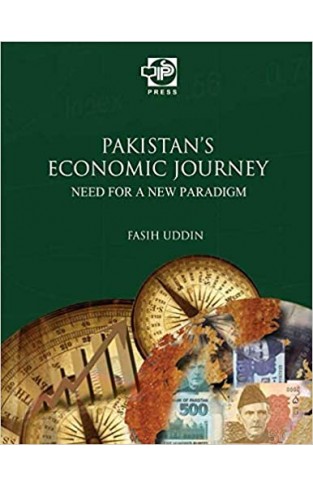
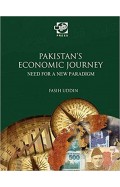
-120x187.jpg?q6)





